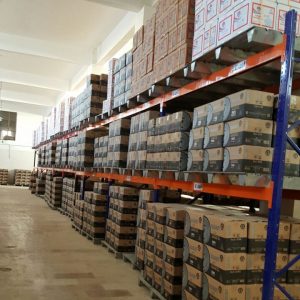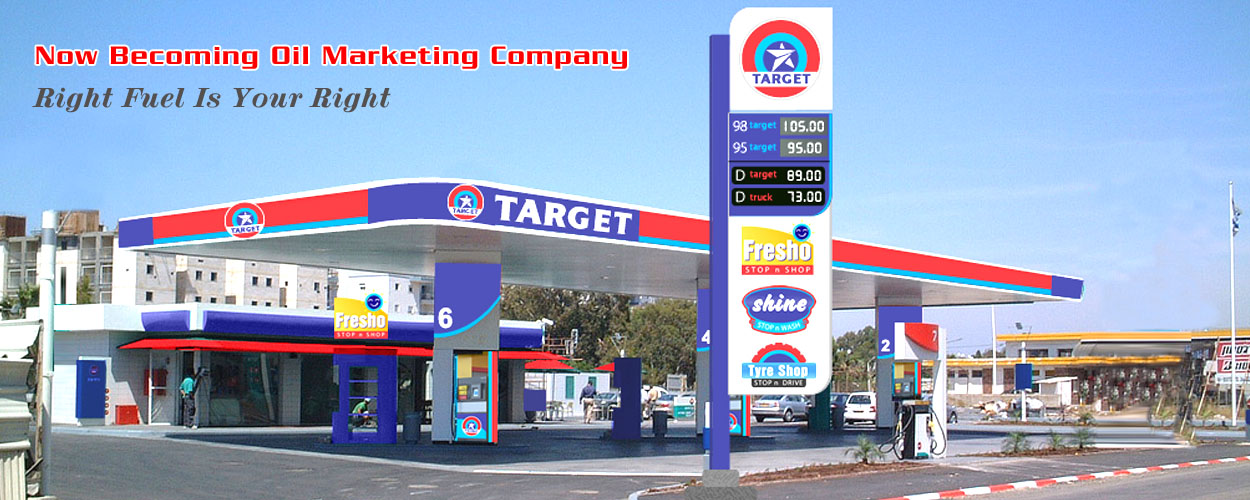STORAGE AND HANDLING OF LUBRICANTS
A modern warehouse has been built in the factory premises in which the Finished Goods of various Grades & Packing are stored properly and kept in rack and shelves.
Cleanliness of the storage area is the first and foremost requirement of storing lubricants. The place should be well ventilated, avoiding accumulation of fumes. Spilling of the lubricants on the floor must be strictly avoided, and must be cleaned immediately if it does occur.

- When the drums are stored outside, these should be preferably placed lying on their sides, ensuring that the drums do not actually touch the floor, to avoid rusting and corrosion of the drum sides due to corrosive material present in the floor soil.
- Care should be taken to see that the floor is clear of any grit or even very small pieces of stone, especially when plastic drums are stored. Even very small grits are known to penetrate through the walls in time, starting a profuse leakage.
- Stacking of the drums directly on the surface where clinkers are present should be strictly avoided, for the latter has a strong corrosive effect on metals.
- When stored in an upright position, care should be taken that no water stands on the top and around the bungs to avoid contamination of the lubes by water that may find its way through the threads of the bungs when low pressure is created inside the drums as the ambient temperature lowers, causing contraction in the oils and drawing the water in.
- It is sometimes recommended that the drums, while stored in an upright position, these should be placed upside down (bungs at the bottom), and raised clear off the ground.

- Drums should be opened only in the lubricant store room, after cleaning the area around the bungs.
- For taking the lubricant out of the drum for use or repacking, first the bungs should be opened, and then proper dispensing pumps should be inserted and secured to minimize dripping. Dripping pans should be used to collect the spillage.
- Lubricants collected from spillage, or used lubricants should be stored separately for their disposal, taking safety of environment and soil into account.
- The pumps must be thoroughly cleaned before use to avoid contamination.
- When the contents need to be removed from the drums while placed horizontally, the drum should be placed on a suitable cradle. Before placing the drum on the cradle, the bungs should be replaced with suitable taps. Drip trays must be placed under the taps to avoid drops falling on the ground.
- The containers should be kept closed when not in use.
- When lids of grease drums are removed, a suitable cover should be placed on the opening to avert the entry of dirt or dust into the drums.
- When the drums are emptied, care should be taken that maximum contents are drained out. This may take a rather long time, but the waste of the lubricants adhering to the inside of the drums would be saved. This aspect of emptying the drums may be especially relevant for grease, for a significant quantity may get thrown away with the empty drums otherwise. And greases are expensive!
- Direct heat or even sunshine should be avoided on the stored drums. Greases are especially susceptible to exposure to heat, even prolonged sunshine, as oils are prone to separate in the grease, and then the grease may no longer be usable
SAFETY
- Safe use and handling of lubricants is of paramount importance, both for the user as well as for the environment.
- The machinery must be stopped when oiling is attempted.
- Lubricants can burn if exposed to open flame.

- Clothes and fabrics, cotton waste and mops used for cleaning are especially flammable when soiled with the lubricants.
- Fire extinguishers and other firefighting equipment must be placed strategically, and in easily accessible places. Every one working around lubricants must be aware of their location and use.
- Oxygen cylinders / tanks must never be placed in the vicinity of lubricants, for the mixture of lubricant fumes and oxygen can form a powerfully explosive compound.\all spillage / drops must be immediately removed from the floor to avoid slipping over the surface, which may cause a serious accident.
- For storage, handling, sale and use of the lubricants, the importance of good housekeeping can never be overstated.
- susceptible to exposure to heat, even prolonged sunshine, as oils are prone to separate in the grease, and then the grease may no longer be usable.






